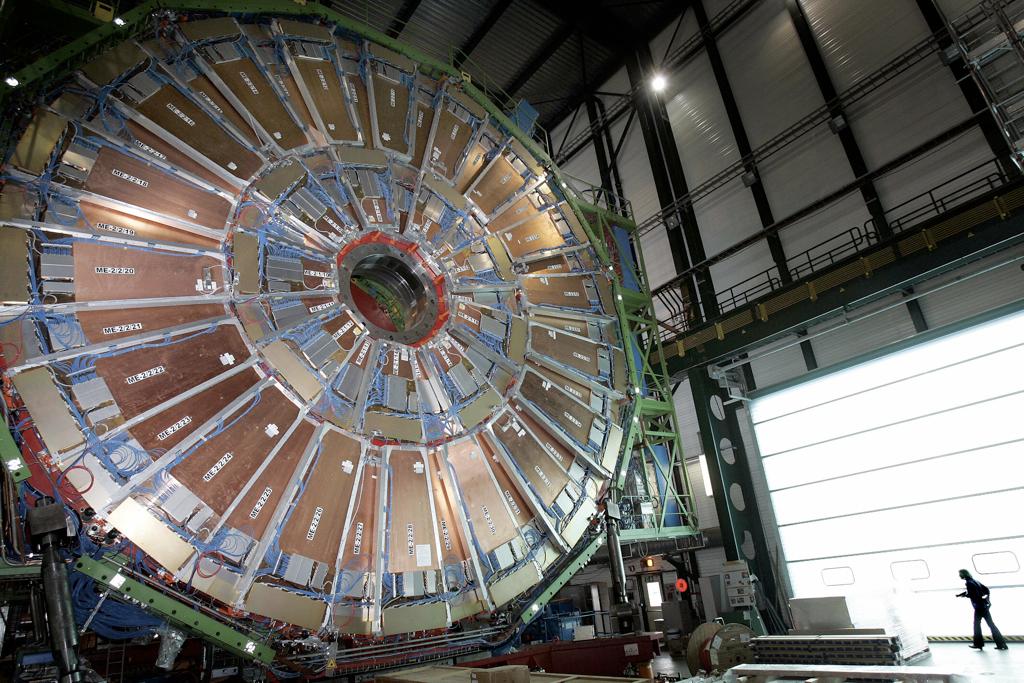New particle discovered via the Large Hadron Collider
The Large Hadron Collider, described as the most complex scientific project yet conducted, relies on the world’s biggest superconducting solenoid magnet.
Scientists using the Large Hadron Collider near Geneva, Switzerland, have discovered a new particle.
The particle, called “neutral Xi_b^star baryon,” is made up of three quarks, including one beauty quark, according to Symmetry, a magazine produced by the Fermi National Accelerator Laboratory and SLAC National Accelerator Laboratory. Symmetry announced the discovery of the particle.
The particle was observed after scientists smashed two beams of protons traveling in opposite directions in the LHC and studied the debris that resulted, Talking Points Memo reported.
The miniscule particle exists for such a short time that scientists didn’t observe it directly, but saw evidence of its decay, TPM reported.
Carlos Lourenco, a senior researcher with the European Organization for Nuclear Research, the organization that oversees the experiments at the LHC, told TPM that the particle, which cannot occur anywhere else on Earth outside of the accelerator, only rarely turns up in outer space. “It might get produced once in a while, when a high-energy cosmic ray collides with the moon, for instance,” Lourenco said.
“Finding this particle is really very hard,” physicist Vincenzo Chiochia, one of the co-leaders of the search, told Symmetry Magazine. “Finding this complicated decay in such a messy event makes us confident in our abilities to find other new particles in the future.”
Scientists are hoping the LHC will provide evidence of the existence of the Higgs boson, a hypothetical elementary particle that explains how particles get their masses.
More from GlobalPost: Higgs boson: Closing in on the “God particle” (VIDEO)
We want to hear your feedback so we can keep improving our website, theworld.org. Please fill out this quick survey and let us know your thoughts (your answers will be anonymous). Thanks for your time!
